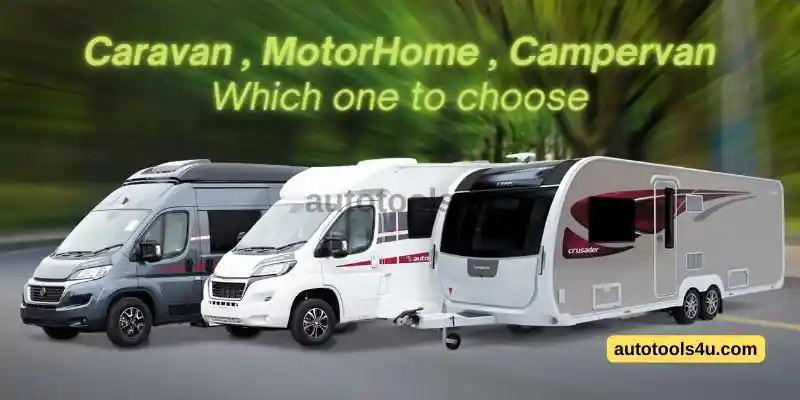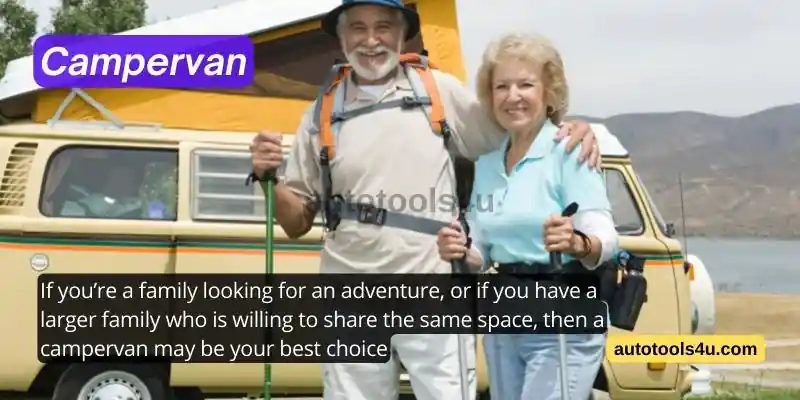Introduction
If you’re someone who loves to travel and explore new places, you might be considering investing in a caravan, motorhome, or campervan. However, with so many options available, it can be difficult to figure out which one is the right fit for you. Each of these vehicles comes with its own unique set of pros and cons, and it’s important to consider them all before making your final decision. Are you looking for something compact and easy to maneuver, or do you want the luxury of a fully-equipped mobile home? Do you prefer the freedom of the open road, or do you need the stability of a more permanent setup? In this article, we’ll explore the advantages and disadvantages of caravans, motorhomes, and campervans, so that you can make an informed choice that fits your lifestyle and travel goals.
Caravan 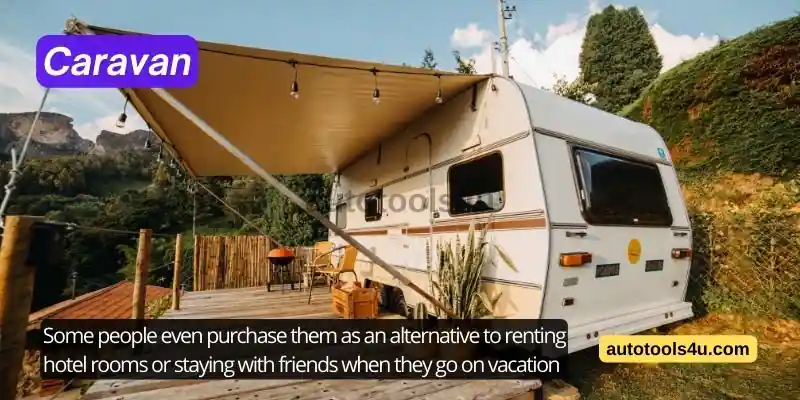
Caravans, also known as motorhomes, are designed for travel. They’re typically towed by a car or truck and used to move around campgrounds while on the road. Some people even purchase them as an alternative to renting hotel rooms or staying with friends when they go on vacation. Caravans have everything you need inside so you don’t have to worry about packing any food or supplies (other than your clothes and personal belongings). You can bring along everything from pots, pans and utensils right down to spices!
Price Range for Starter Caravan
The price range for starter caravans is $20,000 – $50,000. It will depend on the make and model of your caravan. If you are looking for a good quality caravan that is built to last, expect to pay about $40,000+.
A good quality caravan costs $40,000+, but you can find a decent one for around $30,000. The price range for starter caravans is $20,000 – $50,000. It will depend on the make and model of your caravan.
Road Legality and Insurance Cost for Caravans 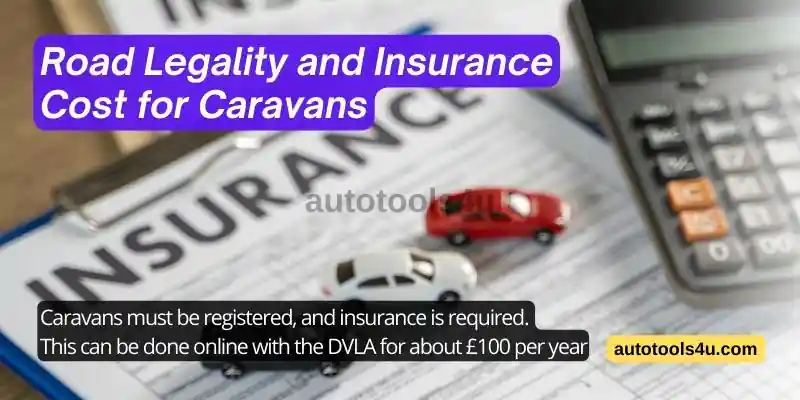
Caravans must be registered, and insurance is required. This can be done online with the DVLA (Driver and Vehicle Licensing Agency) for about £100 per year. Insurance for caravans is more expensive than for motorhomes; it’s not uncommon to pay around £800 per year to insure a caravan. The main reason behind this price difference is that caravans don’t have any of the safety features that motorhomes have, such as electronic stability control (ESC), full-length crumple zones, or side impact protection bars.
Caravan insurance generally covers:
- Accidental damage like fire or flood damage if you park up on land outside your home address
- Theft of your caravan if it’s stolen while parked overnight within 500 meters of a road somewhere in England and Wales
- Legal liability cover so you can claim compensation from an external party who causes injury or damage to another party while using your vehicle
Price Range for Starter Caravan 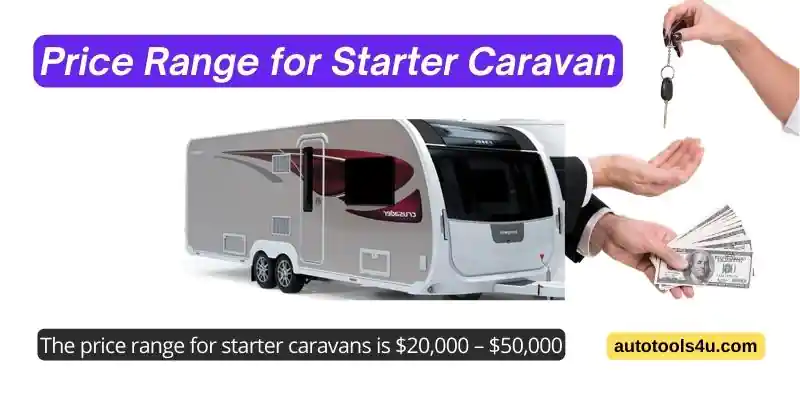
The price range for starter caravans is $20,000-$50,000. You can expect to pay about $5000 for basic insurance and registration. The cost of repairing caravan parts varies depending on the make and model but is often between $200-800 per incident. A new Toyota Camry costs around $32000 in Australia, which means that buying a decent caravan would be equivalent to buying a small family car!
Handling Skills required for Caravans 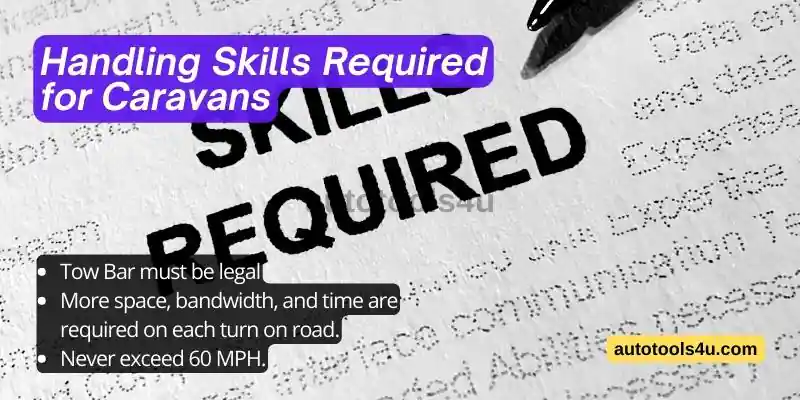
If you have never driven a caravan before, you will find they do not feel like cars. Caravans are very light and easy to handle, but there are some important differences:
- Legal Weight Limit – Carefully Check if the weight of the load is compatible with your license, also try not to make it too heavy. The Heavier, the more difficult it is to handle.
- Tow Bar must be legal
- More space, bandwidth, and time are required on each turn on road.
- Never exceed 60 MPH.
- To prevent “Snaking”, Car and Caravan should be matched, and if possible try to use stabilizers.
- Difficult reverse gear maneuver – This can be particularly hard on caravan loads especially on uneven surfaces (don’t forget to check there is nothing behind before doing this).
- There are no airbags or ABS brakes so take care when parking on uneven ground where there may be bumps or dips under your wheels which could cause damage (you can always check beforehand by driving over an area with some pieces of wood placed under each wheel). Also do not try reversing over long distances as this will put too much strain on one side of your vehicle causing damage possibly leading to an accident so use a reversing camera instead! A good setup would be using both front & rear cameras together with a screen positioned centrally in front of the driver’s seat! This way you can see exactly what’s behind without having anyone else helping out with directions etc..
Limitations for Caravans
We have already established that caravans are not suitable for long-distance travel. They are also not ideal for off-road excursions, and their compact size does not allow them to be used as a home or storage unit. Consider all of these limitations before deciding to buy a caravan:
- Check if your car can actually tow or pull the desired caravan. This is normally given in the owner manual.
- Heavier caravans may actually have to carry a functional brake system.
- Caravans must be parked where the owner wants them, so you must find an available area that meets your requirements. This is usually near power and water hookups but can vary based on location and model type.
- Many caravans do not have toilets or sinks, so you’ll need to find facilities nearby if you wish to maintain proper hygiene while traveling long distances with your friends or family members!
Typical Applications for Caravan
- Short trips (3-4 days)
- Camping
- Family trips
- Long trips (6-8 weeks)
- Adventure trips
- Off-road excursions
- Fishing trips
- Hunting trips
You can enjoy your trip with your family and friends by camping, traveling or just going for a ride. You will be able to relax and rest in your comfort zone.
Motorhome 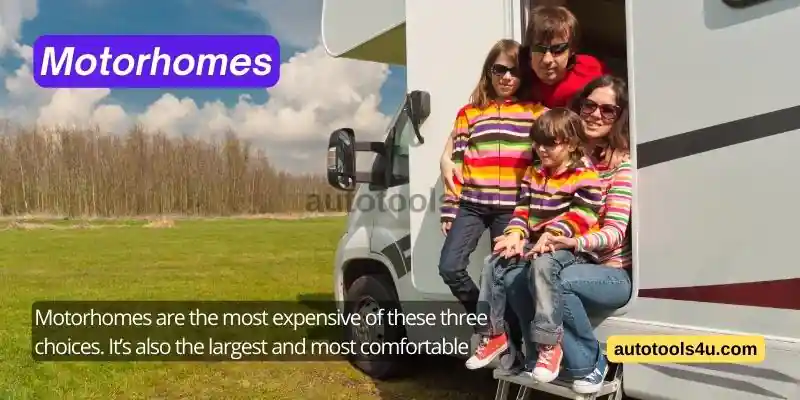
Motorhomes are the most expensive of these three choices. It’s also the largest and most comfortable. It’s very luxurious, with lots of extras and a high-end feel. Motorhomes are often called “mobile homes” because they have everything you’d find in a regular house but instead on wheels!
Motorhomes have more space than other types of vehicles, making them ideal for families or large groups who need to stay together without being cramped into small spaces. The larger size also allows for more storage space than other types of RVs (recreational vehicles) so you don’t need to worry about traveling with everything you own!
Price Range for Starter Motorhome 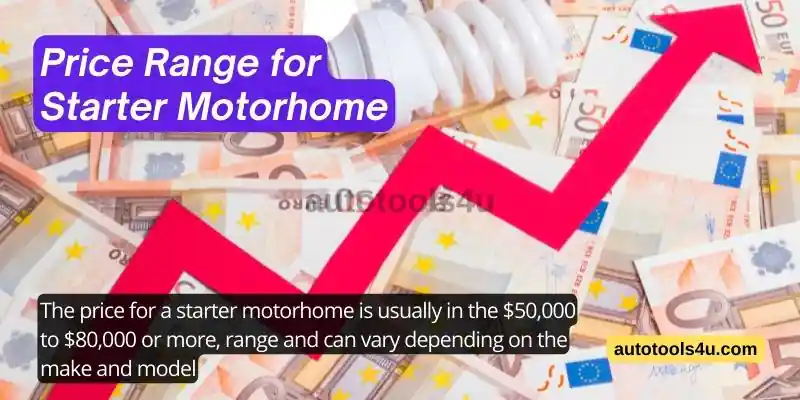
The price for a starter motorhome is usually in the $50,000 to $80,000 or more, range and can vary depending on the make and model.
A basic RV requires no modifications to your car, but it doesn’t offer any protection from rain or snow unless you purchase an additional cover. The downside of this type of conversion is that it takes up more space than other types of RVs since it’s not designed specifically for this purpose (and your vehicle may need some repairs after being converted).
Typical Application for Motorhome
If you like to travel around the country, then Motorhome is your best choice. It’s like a campervan with the luxury of a hotel room. The vehicle is bigger and more comfortable than those in Class B or C categories, but not as big and luxurious as the Class A category. Motorhomes are usually equipped with kitchen appliances such as stove tops and ovens or microwave ovens so that you can cook meals while on the road.
Because motorhomes have a lot of space, they are ideal for families who want to go on long trips together. Motorhomes can accommodate up to eight people comfortably since they include two bathrooms (one master bedroom with an ensuite bathroom). You just need to rent an RV travel trailer or RV rental when traveling with more people!
Road Legality and Insurance Cost for MotorHomes
It is important to note that insurance for Motorhome does not need to be expensive and varies according to the size of your vehicle and the value of the contents. For example, if you have a campervan with a small engine then your insurance cost will likely be lower than if you have something larger such as an A-class motorhome or even a B-class RV. A good place to start looking is with broking companies like Gocompare who offer quotes from a wide range of providers at no cost.
As we discussed earlier, there are many different types of motorhomes on the market today ranging in size and style – so we’re going to look at some options available on the market right now:
Typical Application for Motorhome
MotorHomes as the name suggests are designed for long-term living – Essentially treating your motor as your home!
Motorhomes are a great choice for people who want to travel around the country and need more space. If you are planning a long trip or driving your car every day, you will save a lot of money by using a motorhome instead of renting hotels. It also allows you to cook your own meals and stay in touch with family members at all times.
Limitations for Motorhomes
A motorhome may be a good choice for those who want to take their car with them, but not everyone can afford one. A motorhome has many limitations:
- Expensive price and maintenance.
- Limited storage space – You have to choose what you want to take with you carefully. If your lifestyle is such that you need a lot of things with you all the time, then this will not be much fun for you. Plus, if your vehicle breaks down somewhere and it takes several days before someone finds it and tows it somewhere safe, there won’t be any place left in it by then!
- Limited access to certain areas – In some countries or municipalities it is illegal for vehicles larger than 14 feet wide or 20 feet long (4m x 6m) to drive through certain streets or even get parked on certain sidewalks (sidewalks are narrow strips of land alongside roads). Imagine how difficult life would be if all your activities were limited by whether they could fit inside a 30-foot-long van!
Handling Skills required for MotorHome
The handling skills required for MotorHome are more advanced than those used when driving a Caravan. This is because MotorHomes tend to be heavier and bigger than caravans, therefore taking longer to stop, turn and accelerate. If you have never driven one before, it is recommended that you practice on quiet roads before committing yourself to behind the wheel of a motorhome.
Another handling skill that differs between these two vehicles is the parking space requirements for each type of vehicle. As mentioned above, Motorhomes are much larger than caravans so they require larger parking spaces in order not to obstruct traffic or other parked vehicles during their stay at a campsite or rest area.
Campervan
If you’re a family looking for an adventure, or if you have a larger family who is willing to share the same space, then a campervan may be your best choice. A campervan is easy to drive and can be converted for different purposes. You can use it as a mobile home when you go on vacation but also convert it back into a regular car when needed.
Campervans are versatile because they can be used by families who want to enjoy their time together without having too much of their own space. But they’re also great for couples who want some privacy while traveling together!
Price Range for Starter Campervan 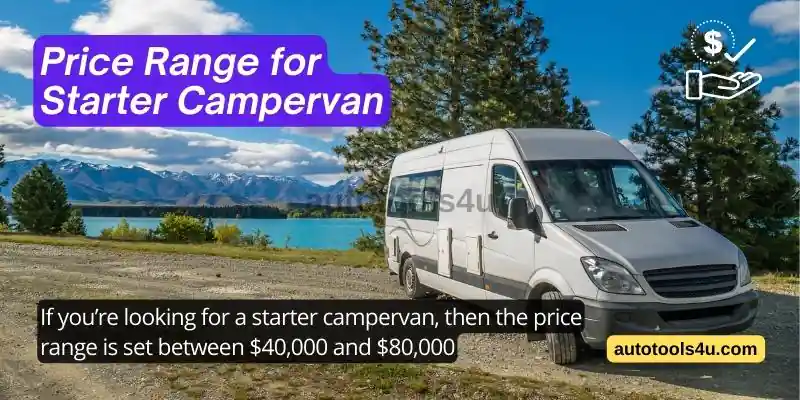
If you’re looking for a starter campervan, then the price range is set between $40,000 and $80,000. But remember that this is just an average figure – the price may vary depending on what kind of van you want. For example, if you want a luxury vehicle or an RV with all the modern amenities, then it will cost more than this amount. On the other hand, if your priority is to buy a used campervan with low mileage and no damage history at all then it can be yours at less than $30K!
Handling Skills Required for Campervan
A campervan is a vehicle that can be converted into self-sufficient accommodation and is used for holidays, vacations, and other leisure activities. It is usually a diesel-powered vehicle and has been designed to carry a limited load. The capacity of the vehicle ranges from 2 – 14 persons depending on the size of your family or friends.
Campervans are generally easy to drive but they need special care when driving on difficult roads such as steep hills, sharp turns, undulating roads etc., because they have low clearance, unlike SUVs which have high clearance enabling them to move easily over rough roads.
Many people get confused about handling skills required for campervans because it requires a different set of skills than regular cars but if you learn all these skills then you will be able to enjoy your trip with great ease!
Limitations for Campervans
- Space: Motorhomes and campervans are larger than caravans, so they offer more space to move around. However, they do not have a kitchen.
- Noise: All vehicles produce some amount of noise while driving. This depends on the type of vehicle you select and how well it is insulated from outside noise.
- Storage: You need to be able to store all your belongings in the vehicle before hitting the road! If you have too much stuff, you might end up having to leave some behind because there isn’t enough room for everything in one place inside the motorhome or campervan itself. Additionally, if there aren’t enough storage areas inside then what good will get rid of things do anyway since they’ll just end up cluttering up another area inside?
Road Legality and Insurance Cost for Campervans
The general rule of thumb is that if your vehicle has four-wheel drive, you’re allowed to take it off-road. Campervans are for more adventurous types, as they are better equipped to handle rough outdoor conditions and have far better handling off-road.
Campervans are built for both on and off-road use and are capable of operating on all terrain surfaces including sand, snow, and mud. As a result, they are classified differently than other vehicles in the UK because they do not meet the legal requirements for an “on the road” vehicle. In addition, campervans are also required to have additional safety features such as dual braking systems (one set front/rear) and fire extinguishers mounted inside the van just in case something goes wrong while traveling through remote regions with few resources nearby!
Limitations for Campervans
There are some limitations when it comes to campervans, though.
- Noise: If you’ve never driven one before, it can be quite noisy, especially if you’re traveling at night or on rough roads. Some of the noise is from wind and rain hitting the sides of the vehicle, but other sounds come from rainwater dripping inside onto metal surfaces and bumping into anything that resembles a drum (which is basically everything).
- Space: A campervan will have more storage than an RV, but less than a motorhome. Toilet storage is usually limited too—not just because there may not be enough room for one inside your van or RV, but also because they can often be noisy while in operation.
- Storage: If you like keeping things organized then this might not bother you as much as others; however storing items like suitcases under seats or in cupboards may not be ideal for everyone! This means everything needs to have its own place so that nothing gets lost amongst all those great memories!
Typical Applications for Campervan
- Campervans are designed to short term Living or short-term comfort
- Quick Camping in Wild – No matter where you are going to camp, a campervan is the most convenient option. It can be parked anywhere and kept in secluded spots giving you more privacy. Caravanning – If you want to enjoy your holiday with family and friends then choosing a campervan is the best choice for you. The campervans also come with all essential features which can be used while camping like cooking equipment, cooking utensils, etc. Road Trips – If you are planning for weekend getaways or road trips then choosing a campervan would be ideal for such kind of trip since it has proper comforts such as beds, storage space, and other amenities that will make your journey much easier. Family Holiday – A campervan makes traveling with kids so much easier than any other vehicle because children love being inside these vehicles as compared to staying in hotels or rooms where there are limited activities available for them apart from swimming pools etc., which sometimes may not even have anything good enough for them at all times!
Which are most suitable for off-road excursions? Campervan or MotorHome?
Campervans are the perfect choice for off-road excursions and long-distance travel. They are easy to drive, extremely comfortable, have enough space inside and they don’t require any special driving skills. You can park them anywhere, even in the most secluded spots of your trip. Campervans offer a lot of space so you can sleep in comfort with your family or friends.
Motorhomes are better suited for living in because they offer more comfort than campervans do. They usually have washing machines and dryers which makes it easier for you to clean your clothes without having to find a laundromat somewhere along your way (which is not always possible). The kitchen is usually bigger in motorhomes than it is in campervans so you will be able to cook meals more easily, especially if you’re traveling with kids who need their favorite foods every day!
Choose which one is the best fit for your purpose
The first thing to consider is what you want to use it for. For example, If you’re planning on taking it on vacations and traveling around Europe, then a campervan is probably the best fit for your needs. If you just want something to drive from place to place in and have a little more comfort than a tent but still don’t need much room, then perhaps a motorhome or caravan might be better suited for your purposes.
Conclusion
Overall, the choice of which mobile home to buy comes down to your personal preferences and requirements. If you’re looking for something with a higher level of comfort than a caravan but still want something portable enough for off-road excursions then maybe consider buying a campervan. Or maybe if you have family members who aren’t keen on roughing it then buying a motorhome might be more suitable. Whatever it may be just remember these tips when comparing cars before purchasing one: Does it fit my budget? Is it fuel-efficient enough? How much maintenance will I need to perform on this vehicle over time (upkeep cost)? Does this car come with any safety features like Anti-lock Braking System?
